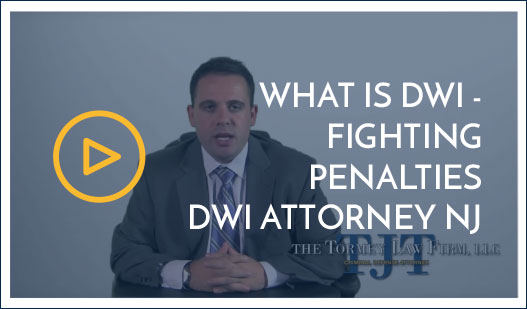Bergen County NJ Official Misconduct Defense Attorneys
Criminal Defense Lawyers with Offices in Hackensack, New Jersey

New Jersey law addresses white collar crimes and political corruption. Official misconduct is one of the more serious white collar crimes. For instance, even if the predicate offense does not warrant prison time, the fact that the offense was committed by a person entrusted to perform a government function makes it a more serious crime. The penalties for official misconduct in New Jersey include a prison sentence (with a period of parole ineligibility), job loss, and withholding of pension benefits.
If you or a loved one has been charged with a white collar criminal offense in New Jersey, contact the talented criminal defense team at The Tormey Law Firm for immediate assistance. Our seasoned defense attorneys have been handling cases involving official misconduct, forgery, and credit card fraud throughout New Jersey for years, including in Fort Lee, Saddle Brook, and East Rutherford. In fact, Mr. Tormey previously represented the deputy mayor of Howell Township in Monmouth County on official misconduct charges. In addition, some of our lawyers have prosecuted these charges on behalf of the State and now use their training and expertise to defend our clients in court. Call us today at (201)-330-4979 for a free consultation about your case, and please continue reading this page for more information about official misconduct charges in New Jersey.
Official Misconduct in New Jersey: N.J.S.A. 2C:30-2
Official misconduct is a white collar crime in New Jersey. It is governed by N.J.S.A. 2C:30-2, which provides, in pertinent part:
§ 2C:30-2. Official Misconduct
A public servant is guilty of official misconduct when, with purpose to obtain a benefit for himself or another or to injure or to deprive another of a benefit:
a. He commits an act relating to his office but constituting an unauthorized exercise of his official functions, knowing that such act is unauthorized or he is committing such act in an unauthorized manner; or
b. He knowingly refrains from performing a duty which is imposed upon him by law or is clearly inherent in the nature of his office.
Official misconduct is a crime of the second degree. If the benefit obtained or sought to be obtained, or of which another is deprived or sought to be deprived, is of a value of $ 200.00 or less, the offense of official misconduct is a crime of the third degree.
Essentially, the statute applies to anyone performing a government function. In other words, the statute governs any public servant. This typically means an officer or employee of the government, such as a legislator or judge. However, it can also include a juror or a consultant performing a government function. The most common example of an official misconduct offense is soliciting a bribe.
Official misconduct is typically a third degree crime. However, if the value of the benefit involved exceeds $200.00, the offense becomes a second degree crime.
Fortunately, there are defenses available to an official misconduct charge. Because intent is a necessary element of the prosecution’s case, the defendant must have known that his or her act was unauthorized.
Pattern of Official Misconduct: N.J.S.A. 2C:30-5
One crime that is closely related to official misconduct is known as a “pattern of official misconduct.” A crime or pattern of official misconduct is another white collar offense in New Jersey governed by N.J.S.A. 2C:30-5, which provides, in pertinent part:
§ 2C:30-5. Crime or Pattern of Official Misconduct
a. A person commits the crime of pattern of official misconduct if he commits two or more acts that violate the provisions of N.J.S. 2C:30-2 or section 2 of P.L. 2003, c. 31 (C. 2C:30-6). It shall not be a defense that the violations were not part of a common plan or scheme, or did not have similar methods of commission.
b. Pattern of official misconduct is a crime of the second degree if one of the acts committed by the defendant is a first or second degree crime; otherwise, it is a crime of the third degree, provided, however, that the presumption of nonimprisonment set forth in subsection e. of N.J.S. 2C:44-1 for persons who have not previously been convicted of an offense shall not apply. Notwithstanding the provisions of N.J.S. 2C:1-8 or any other law, a conviction of pattern of official misconduct shall not merge with a conviction of official misconduct, official deprivation of civil rights, or any other criminal offense, nor shall such other conviction merge with a conviction under this section, and the court shall impose separate sentences upon each violation of N.J.S. 2C:30-2 and sections 2 and 3 of P.L. 2003, c. 31 (C. 2C:30-6 and C. 2C:30-7).
Official Misconduct Penalties and Sentencing in New Jersey: N.J.S.A. 2C:43-6.5
In addition to the above penalties, a public official who is convicted of a crime which involves his or her public position is subject to additional penalties. This is set forth in N.J.S.A. 2C:43-6.5, which provides, in pertinent part:
§ 2C:43-6.5. Mandatory minimum prison term for public officer
a. Notwithstanding the provisions of subsection a. of N.J.S.2C:43-6 and except as otherwise provided in subsection c. of this section, a person who serves or has served as a public officer or employee under the government of this State, or any political subdivision thereof, who is convicted of a crime that involves or touches such office or employment as set forth in subsection b. of this section, shall be sentenced to a mandatory minimum term of imprisonment without eligibility for parole as follows: for a crime of the fourth degree, the mandatory minimum term shall be one year; for a crime of the third degree, two years; for a crime of the second degree, five years; and for a crime of the first degree, 10 years; unless the provisions of any other law provide for a higher mandatory minimum term. As used in this subsection, “a crime that involves or touches such office or employment” means that the crime was related directly to the person’s performance in, or circumstances flowing from, the specific public office or employment held by the person.
Contact our Bergen County NJ White Collar Crimes Defense Lawyers
As you can see, the penalties for official misconduct can be very severe. Mandatory parole ineligibility means that the defendant must serve a minimum mandatory term in state prison before becoming eligible for release on parole. As a result, it is imperative that you contact an experienced white collar crime defense lawyer to represent you. Contact the Hackensack offices of The Tormey Law Firm anytime at (201)-330-4979 for a free consultation.


